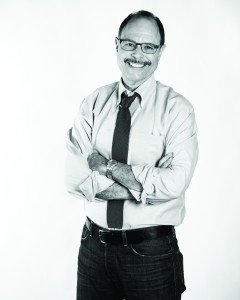Better Practices

Alternative business lenders believe that developing good ethics is the key to a prosperous future
Industry leaders say ethics and best practices have taken center stage in the alternative business lending industry now that hedge funds and Wall Street investors aim to take this booming funding source mainstream. In just a few short years, alternative lending has evolved from an emerging small-business funding mechanism to a multi-billion dollar industry. With this form of lending thrust into the spotlight, thought leaders in the space say establishing these best practices will be a necessary self-policing step to keep customers happy and regulators at bay.
 “If we all adhere to good practices and really put the client first, it’s not just going to benefit the company. In the long run, it’s going to benefit the whole industry as well,” said Scott Griest, CEO of American Finance Solutions based in Anaheim, California. Lower fees, longer-term loans and greater transparency rank among the areas industry leaders cite as goals for alternative lending. The practice of stacking has also come under heavy scrutiny. Industry leaders say that having merchants overextend themselves and ultimately go out of business only hurts the funding companies in the long run.
“If we all adhere to good practices and really put the client first, it’s not just going to benefit the company. In the long run, it’s going to benefit the whole industry as well,” said Scott Griest, CEO of American Finance Solutions based in Anaheim, California. Lower fees, longer-term loans and greater transparency rank among the areas industry leaders cite as goals for alternative lending. The practice of stacking has also come under heavy scrutiny. Industry leaders say that having merchants overextend themselves and ultimately go out of business only hurts the funding companies in the long run.
Some warn that while the spotlight might be good for industry growth, it could also capture the attention of regulators who want to oversee it. Industry critic Ami Kassar says that if alternative lenders don’t step up and start regulating themselves, someone else might start doing it for them.
“I think that if the industry doesn’t start to adopt many of these standards on their own, at some point in the future there will be regulation. And that will be much more difficult for the industry if it doesn’t adopt standards now,” said Kassar, founder and CEO of Philadelphia-based MultiFunding.com, which helps identify loan options for small businesses.
The challenge funders face is balancing ethics with profitability. Although industry members contend that implementing best practices will actually boost customer retention and profits.
“If you can take care of a client, they’re going to become a good partner with you and also a very profitable client with you in the long term,” Griest said.
STACKING UNDER SCRUTINY
As far as ethics go, the practice of stacking stands out as one of the most controversial subjects in alternative lending. Many industry members look down on the practice of providing a merchant with a secondary cash advance on top of an existing advance from another funder that the merchant is still paying off.
 Andy Reiser, CEO of Strategic Funding Source in New York, says he is starting to see some of the larger companies carry out questionable practices in regard to stacking.
Andy Reiser, CEO of Strategic Funding Source in New York, says he is starting to see some of the larger companies carry out questionable practices in regard to stacking.
“In the early days, we used to only see bad behavior from the newer, less professional companies. Now we’re starting to see it from some of the larger companies,” he said.
Although Reiser is not a proponent of stacking, he says that he’s come to terms with the fact that stackers are going to carry out the practice no matter what. He says lending companies might as well figure out ways to give out those loans themselves, rather than become consumed with trying to weed out stacking. Strategic Funding Source tells its clients that if they need more money, they’re better off sticking with them than going out and obtaining capital from another company, which is going to give it to them at an extraordinarily high rate and for a short term, Reiser said.
“We let the wolf into the hen house. Now the onus is on us to educate our clients,” he said.
 David Goldin, CEO of New York-based AmeriMerchant, believes stacking is unfair not only to the merchant, but also to the primary funder whose money is being put at risk.
David Goldin, CEO of New York-based AmeriMerchant, believes stacking is unfair not only to the merchant, but also to the primary funder whose money is being put at risk.
He uses the example of a merchant who asks for $100,000, but the funding company advances the merchant only $75,000.
“It’s not because they can’t give more money; it’s because they think the merchant can’t handle it,” Goldin said.
If a second funder comes in to give that merchant an additional $25,000, that funder not only endangers the merchant’s cash flow, but also puts the primary funding company’s $75,000 in jeopardy.
Some funders contend there are some exceptions that make stacking acceptable. Heather Francis, vice president of Merchant Cash Group in Gainesville, Florida, says her company does not practice stacking.
“Most of the customers who come to us have a risky credit profile and cash flow issues to begin with. We don’t want to put them out of business,” she said.
However, Francis says she doesn’t have a problem with second placements since merchants might run into a cash flow shortage before they’ve finished paying off their current advance, and might need a second advance to fund an emergency, such as a broken refrigerator or some other piece of equipment.
“As an industry, we have created longer-term programs, which obviously drove the need for stacking. But when it goes to a third, fourth and fifth (advance), that is creating an issue,” she said.
 Marco Lucioni, vice president of the small business program for Opportunity Fund in San Jose, California, believes the practice of stacking in and of itself isn’t necessarily a bad thing. Ultimately, the issue comes down to leverage. Stacking multiple loans is acceptable as long as the combined payments of those loans don’t exceed a certain percentage of a business’ revenues. If that threshold is 10 percent, for instance, a single advance taking 12 percent of a business’ revenues would actually be much more damaging than two advances that, when combined, take 8 percent of revenues.
Marco Lucioni, vice president of the small business program for Opportunity Fund in San Jose, California, believes the practice of stacking in and of itself isn’t necessarily a bad thing. Ultimately, the issue comes down to leverage. Stacking multiple loans is acceptable as long as the combined payments of those loans don’t exceed a certain percentage of a business’ revenues. If that threshold is 10 percent, for instance, a single advance taking 12 percent of a business’ revenues would actually be much more damaging than two advances that, when combined, take 8 percent of revenues.
“Really, our concern is making sure the loans are helping small business sustainability, and not the other way around,” Lucioni said.
CRITICS SCRUTINIZE THE INDUSTRY
Alternative lending has amassed its share of critics who question the industry’s ethics, and Lucioni is among those who says he would like to see some changes take place. He has been trying to promote transparency in the industry and says his own company, a nonprofit, does this by reporting its APRs to its clients.
“Our message in transparency of cost is everyone should disclose their pricing through an APR,” Lucioni said. “It really allows the small business owner to choose wisely.”
He points out that giving a one-month loan of $10,000 that costs $13,000 to pay back could end up being more expensive than a one-year $10,000 loan that costs $14,000 to pay back. Even though the one-year loan costs $1,000 more than the one-month loan, it’s easier for the merchant to pay back that extra amount over the course of 12 months than in just one.
Ami Kassar has also questioned some of the industry’s practices. Kassar, who blogs for the Wall Street Journal, argues that the industry should work toward helping business owners become bankable, as opposed to putting them out of business.
“The ultimate goal of the industry should be to help the business owners get to the point where they’re bankable. No business should live in alternative lending forever,” Kassar said.
Kassar believes that there will and always should be an alternative lending industry to help business owners that are unable to receive help from banks. But that industry should be transparent and clear and act as a crutch that businesses can lean on until they can secure a bank loan.
“If the industry recognizes and embraces that and works toward building products that help business owners get there, the companies that take that position will eventually be the leaders,” Kassar said.
 Critics from the mainstream finance realm take a more severe view of the ethics of merchant cash advance. Management consultant Mitchell D. Weiss, whose 30 years of banking experience is steeped in lending, opposes the overall practices of the industry and calls this type of lending “the financial equivalent of crack.”
Critics from the mainstream finance realm take a more severe view of the ethics of merchant cash advance. Management consultant Mitchell D. Weiss, whose 30 years of banking experience is steeped in lending, opposes the overall practices of the industry and calls this type of lending “the financial equivalent of crack.”
He believes that merchant cash advances raise the likelihood that merchants will continue to borrow that money again and again, rather than get to the bottom of what’s causing their business to fall short and solve that problem.
“It will eat up their profitability, and they’ll have nothing left for themselves,” Weiss said.
The more serious concern, Weiss says, is that gaining access to cash at an accelerated rate sets merchants up for failure. “When you’re accelerating the rate of cash, what do you do for an encore?” he asks. Weiss says merchants need to assess the rationale behind why they’re borrowing money in the first place, and determine whether they’re engaging in a financial activity that masks a fundamental problem.
Weiss says that merchant cash advance is an alternative that borrowers should consider only when things happen that are outside of the control of their business, such as when something has caught them by surprise.
“It is not a good product to rely on month after month,” he said.
LEADING BY EXAMPLE
Alternative lending companies have been responding to industry scrutiny by maintaining in-house best practices and setting an example as an industry “good citizen.”
Long-standing industry player CAN Capital Inc. of New York operates on the belief that tying its success to its clients’ success will drive ethics.
“In terms of our corporate values, we exist to help our small businesses succeed,” said Parris Sanz, chief compliance officer for CAN Capital.
Sanz says that his company works to uphold the original intent of the merchant cash advance, which is to help small businesses thrive by providing working capital. CAN credits itself as an industry pioneer and lays claim to inventing the merchant cash advance product in 1998. The company was founded by a small business owner, who saw her business face its own cash-flow issues.
Sanz says because of CAN Capital’s roots, the company puts its small business customers at the forefront.
“We view our inspiration for the company as reflective of our role in the industry,” he said.
The design of CAN Capital’s merchant cash advance product drives its ethical behavior because the company succeeds only if its merchant clients succeed, and CAN Capital has no recourse against merchant clients that simply go out of business.
Sanz says the merchant cash advance that CAN Capital provides is a purchase of future receivables, not a loan, so it doesn’t have a fixed term or minimum payment amount. Because CAN Capital is entitled only to a set percentage of a small business’ card transactions, the amount remitted to CAN Capital ebbs and flows with the merchant’s card sales.
That means that if a merchant’s card sales volume declines, the amount of receivables delivered to CAN Capital goes down too. In that same month of low sales, there are few if any other financial relationships the merchant has that will be as fluid, Sanz said.
“They probably won’t get a break on their rent,” he said.
And provided the merchant doesn’t breach certain covenants of its contract, such as by switching its card processor, CAN Capital takes the hit.
“We take the risk that their business may decline or fail,” he said.
Other industry leaders have chosen to tackle fees in their quest for ethical responsibility.
Francis of Merchant Cash Group says the practice of charging high fees is something her company doesn’t partake in. Some companies charge north of $1,000 in fees on a $20,000 advance.
Merchant Cash Group charges between $80 and $250 for all advances, with $250 being the cap.
“They’re already paying money on the advance. So we don’t want to charge them exorbitant fees just to get their funding,” Francis said.
Kassar of MultiFunding.com says he would like to see cash advance companies give brokers commission-based incentives to minimize or eliminate prepayment penalties for borrowers.
“Brokers today demand what, in my opinion, is a ridiculous price to get loans passed on to the small business owner. That makes it very difficult for the lender to not take the risk of a prepayment option,” he said.
Kassar suggests that short-term lending companies could start offering brokers a percentage of what the loan earns on a monthly basis. The commission would be paid over the life of the loan, instead of up front.
“As the lender earns money, the broker earns money,” he said.
Adopting a commission model could help short-term lenders avoid having to charge small business owners the kinds of huge up-front fees that could potentially put them out of business, he said.
STANDARDS AND THE FUTURE
As the industry looks ahead to what’s next in its growth cycle, leaders say that funding companies ultimately will need to get their houses in order, whether that’s through self policing or outside regulation. Now that big-name investors are injecting billions of dollars in investments into alternative lending, the industry is in a position in which future success might hinge on how companies conduct business.
As CEO of one of the oldest players in the space, David Goldin has witnessed a lot of trends since founding AmeriMerchant in 2002. He says that as the industry matures, it’s becoming more institutionalized, with private equity firms and other investors coming in. That means that cash advance companies that have been doing business with less-than-ethical brokers and ISOs are going to have to raise the bar, he says.
“If a company’s making a $100 million investment into a merchant cash advance funder, they’re probably going to require them to standardize and increase their policies and vetting procedures of who they’re doing business with,” Goldin said.
Goldin says AmeriMerchant’s policy dictates that it won’t work with firms with questionable business practices. For that reason, Goldin says he would like to see the sales force get more skin in the game because they’re not respecting the capital of a funding company. Often, agents will push through a subpar contract just to get more deals approved.
“We like the model of allowing ISOs and agents to put money into a deal so that we know all of our interests are aligned,” Goldin said.
Industry organizations such as the North American Merchant Advance Association, (see sidebar) are setting the stage for alternative lenders to achieve certain standards, but some leaders say regulation might be a foregone conclusion.
Reiser of Strategic Funding Source believes it’s important for the industry to be ahead of the curve in terms of standards and says his company has been working to adapt to what the standards of the future might be.
“Ultimately there will be regulation in this industry. It’s just a matter of time. And I think that’s going to force standards on everyone,” he said.
—–
In the print edition, Scott Griest’s last name was accidentally misspelled. We apologize for the error.
Go to: Previous page | Next page
Go to: | 1 | 2 | 3 | 4 | 5 | 6 | 7 | 8 | 9 | 10 | 11 | 12 | 13 | 14 | 15 | 16 | 17 | 18 | 19 | 20 | 21



